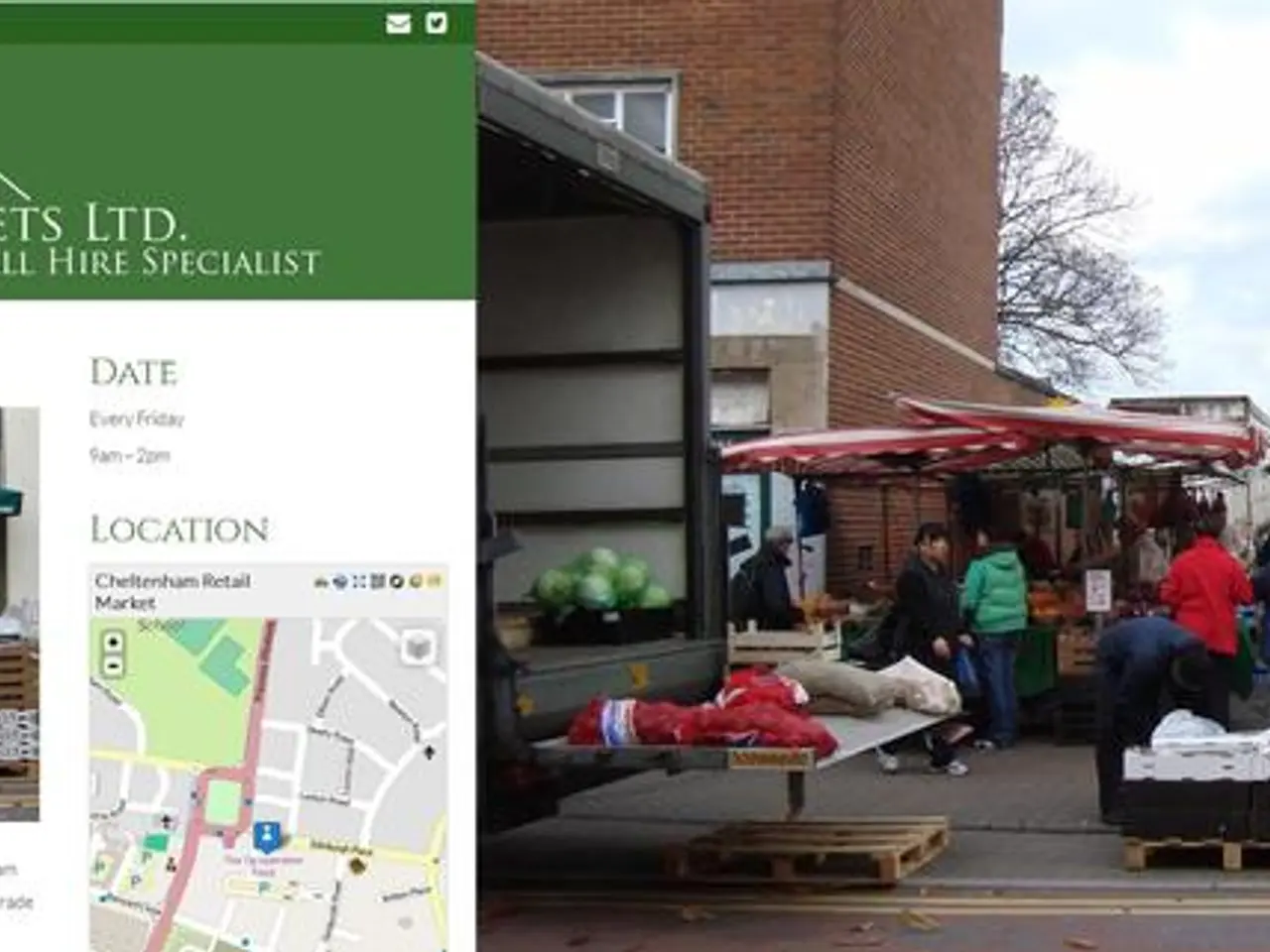Sparking Change: E.ON Seizes the Energy Transition as Germany's Catalyst
E.ON recognised as the "Brand of the Year" in the corporate sector.
Discover how E.ON, a European energy giant, is revolutionizing the landscape with a relentless focus on the energy transition in Germany. With an unwavering commitment to modernization, sustainability, and market-led solutions, this powerhouse aims to drive the country towards a greener, more resilient future.
E.ON's story begins in the heart of Germany, where the nation's ambitious climate and energy goals set the stage for a high-stakes environment brimming with growth opportunities. With 75,000 employees and a customer base of 47 million, E.ON, one of Europe's largest energy companies, steps up as a key player in Germany's energy transition, specifically focusing on grid modernization and the integration of renewables across the continent.
Leveraging its extensive energy distribution network of 1.6 million kilometers, E.ON positions itself as the perfect partner for grid modernization and renewable integration. In response to escalating demand and grid flexibility needs, the company announces a €43 billion investment in infrastructure by 2028—a testament to its commitment to transitioning from traditional energy supply to a digitized, intelligent energy system.
Strategically, E.ON embraces a fresh approach to energy policy, moving away from long-term targets and rigid structures towards a more pragmatic, market-driven framework. This shift emphasizes synchronizing renewable energy expansion with smart grid technologies and electrification, a strategy seen as the most efficient path to emission reduction.
E.ON fully recognizes the growing demand for electrification, with electricity demand in the EU expected to increase by approximately 30% by 2035. In response, the company champions intelligent grid extensions and fosters consumer participation in energy management. Germany's regulatory innovations, like Paragraph 14a of the Energy Industry Act (EnWG), support this vision by enabling the remote management of controllable devices, such as electric vehicle chargers and heat pumps, to optimize grid stability while incentivizing consumer engagement.
To drive change, E.ON allies itself with policy makers and industry stakeholders, collaborating on initiatives like the construction of flexible gas-fired power stations to provide backup capacity during times of variable renewable generation. The company also aligns its strategy with federal government initiatives and proactively supports the new Federal Minister for Economic Affairs and Energy in accelerating the integration and system adaptation of renewable energy.
E.ON's strategic approach encompasses substantial infrastructure investments, a digital and flexible grid, adaptive regulatory and market mechanisms, and close cooperation with governmental energy policies. By adopting this multi-faceted strategy, E.ON solidifies its role as the pivotal enabler of Germany's energy transition, paving the way for a cleaner, more resilient, and consumer-centric energy system.
[1] E.ON plans to invest €43 billion by 2028 in modernizing energy infrastructure to support the integration of renewables and hydrogen, aiming to meet escalating demand and enable grid flexibility.[2] With this investment, E.ON aims to evolve beyond traditional energy supply towards a digitized, intelligent energy system.[3] To synchronize renewable energy expansion with smart grid technologies and electrification, E.ON employs strategies like focusing on electrification and demand-side management, advocating for market-oriented energy policy, and fostering government collaboration in grid modernization.[4] E.ON announces its commitment to transform its brand to reflect its active role in driving the energy transition.[5] By implementing a customer-centric approach and leveraging Germany's regulatory innovations like Paragraph 14a of the Energy Industry Act (EnWG), E.ON drives consumer engagement in energy management, thereby enhancing grid stability.
- E.ON's €43 billion investment by 2028 is aimed at modernizing energy infrastructure for the integration of renewables and hydrogen, and evolving beyond traditional energy supply towards a digitized, intelligent energy system.
- To synchronize renewable energy expansion with smart grid technologies and electrification, E.ON employs strategies like focusing on electrification and demand-side management, advocating for market-oriented energy policy, and fostering government collaboration in grid modernization.





